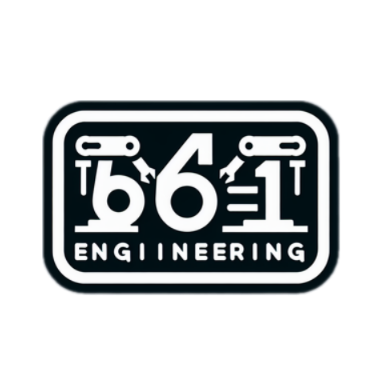Mechanical engineering remains a cornerstone of innovation and industry development. As we advance into 2024, various sectors are increasingly recognizing the value of mechanical engineers for their expertise in design, analysis, and manufacturing processes. Mechanical engineers are integral to a broad range of industries, driving technological progress and optimizing systems. This article explores the top industries hiring mechanical engineers in 2024, highlighting key trends, opportunities, and roles within each sector.
1. Introduction to Mechanical Engineering
Mechanical engineering is a diverse field focused on the design, analysis, manufacturing, and maintenance of mechanical systems. Mechanical engineers apply principles of physics and mathematics to develop solutions for complex problems, creating everything from machinery and vehicles to thermal and fluid systems.
Key Skills for Mechanical Engineers:
- Design and Analysis: Proficiency in CAD software and engineering analysis.
- Manufacturing Processes: Understanding of various manufacturing techniques and materials.
- Problem-Solving: Ability to tackle complex engineering challenges.
- Project Management: Skills to manage projects from conception to completion.
2. Top Industries Hiring Mechanical Engineers in 2024

**1. Automotive Industry:
- Overview: The automotive industry is undergoing a transformative phase with the rise of electric vehicles (EVs), autonomous driving technology, and advanced manufacturing techniques.
- Roles for Mechanical Engineers:
- EV Development: Engineers are needed to design and optimize electric drivetrains, battery systems, and energy-efficient components.
- Autonomous Vehicles: Mechanical engineers work on integrating sensors, actuators, and control systems for autonomous driving.
- Manufacturing and Production: Focus on improving manufacturing processes, quality control, and assembly line optimization.
**2. Aerospace Industry:
- Overview: The aerospace sector is experiencing rapid advancements in commercial and military aviation, space exploration, and satellite technology.
- Roles for Mechanical Engineers:
- Aircraft Design: Engineers contribute to the design and development of aircraft structures, propulsion systems, and aerodynamics.
- Space Exploration: Involvement in designing spacecraft, space habitats, and propulsion systems for space missions.
- Maintenance and Repairs: Engineers ensure the reliability and safety of aerospace components and systems.
**3. Renewable Energy Sector:
- Overview: As the world shifts towards sustainable energy solutions, the renewable energy sector is growing, with a focus on solar, wind, and hydroelectric power.
- Roles for Mechanical Engineers:
- Wind Turbine Design: Engineers work on the design, testing, and optimization of wind turbine components and systems.
- Solar Energy Systems: Involvement in the development of solar panels, thermal collectors, and energy storage solutions.
- Hydroelectric Systems: Engineers design and optimize hydroelectric turbines and infrastructure.
**4. Manufacturing and Industrial Sector:
- Overview: The manufacturing industry continues to evolve with advancements in automation, robotics, and advanced manufacturing technologies.
- Roles for Mechanical Engineers:
- Automation and Robotics: Engineers design and implement robotic systems for automation in manufacturing processes.
- Process Improvement: Focus on optimizing production processes, reducing waste, and improving efficiency.
- Product Development: Involvement in the design and development of new products and materials.
**5. Consumer Electronics Industry:
- Overview: The consumer electronics sector is driven by innovations in smart devices, wearables, and home automation technology.
- Roles for Mechanical Engineers:
- Product Design: Engineers work on the design and development of electronic devices, ensuring functionality, aesthetics, and durability.
- Thermal Management: Focus on designing cooling solutions for electronic components to prevent overheating.
- Manufacturing Support: Involvement in the production and assembly of consumer electronic products.
**6. Medical Devices and Healthcare Industry:
- Overview: The healthcare sector relies on mechanical engineers to develop medical devices, diagnostic equipment, and therapeutic systems.
- Roles for Mechanical Engineers:
- Medical Device Design: Engineers design and develop devices such as implants, prosthetics, and diagnostic equipment.
- Biomechanics: Focus on understanding and improving the interaction between medical devices and the human body.
- Manufacturing and Quality Control: Ensuring the quality, safety, and reliability of medical devices through rigorous testing and manufacturing processes.
**7. Construction and Civil Engineering:
- Overview: The construction and civil engineering sector involves large-scale infrastructure projects, including buildings, bridges, and transportation systems.
- Roles for Mechanical Engineers:
- HVAC Systems: Engineers design and optimize heating, ventilation, and air conditioning systems for buildings.
- Building Systems Integration: Involvement in integrating mechanical systems with architectural and structural elements.
- Sustainable Construction: Focus on developing energy-efficient and sustainable building technologies.
3. Key Trends Influencing Hiring in 2024
**1. Technological Advancements:
- Digital Twin Technology: The use of digital twins in simulation and modeling is becoming more prevalent, requiring engineers with expertise in this area.
- AI and Machine Learning: Integration of AI and machine learning in design and manufacturing processes is driving demand for engineers skilled in these technologies.
**2. Sustainability and Green Technologies:
- Energy Efficiency: There is a growing emphasis on developing energy-efficient solutions and sustainable practices across various industries.
- Circular Economy: Mechanical engineers are needed to design products and systems that support recycling, reuse, and sustainability.
**3. Globalization and Emerging Markets:
- International Projects: Engineers are increasingly involved in international projects and global teams, requiring skills in cross-cultural communication and international standards.
**4. Interdisciplinary Skills:
- Cross-Functional Expertise: Mechanical engineers with interdisciplinary skills, such as expertise in software engineering or materials science, are highly sought after.
4. Education and Skills Required

**1. Educational Background:
- A bachelor’s degree in mechanical engineering or a related field is typically required. Advanced degrees or specialized certifications can enhance job prospects.
**2. Skills and Competencies:
- Technical Skills: Proficiency in CAD software, simulation tools, and manufacturing processes.
- Soft Skills: Strong problem-solving abilities, communication skills, and project management experience.
- Certifications: Professional Engineer (PE) license or other industry-specific certifications can be advantageous.
5. Conclusion
As we move through 2024, mechanical engineers continue to play a pivotal role across a wide range of industries. From automotive and aerospace to renewable energy and healthcare, the demand for skilled mechanical engineers is driven by advancements in technology, sustainability, and innovation. Understanding the trends and opportunities within each industry can help aspiring engineers navigate their career paths and capitalize on emerging job prospects. With the right education, skills, and experience, mechanical engineers are well-positioned to contribute to the evolving landscape of modern engineering and industry.



